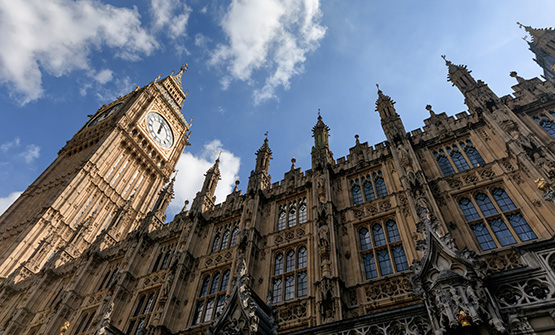Success in the House of Commons
Members in the House of Commons have been celebrating a huge win, as the House Commission has backed our proposals for a Parliamentary Tribunal to determine bullying and harassment complaints against MPs. Assistant General Secretary Amy Leversidge reflects on the long campaign to achieve this.


On Monday, the FDA branch in the House of Commons were celebrating as the House Commission announced their plan for how they were finally going to implement Dame Laura Cox QC’s recommendation to have a fully independent policy to deal with bullying, harassment and sexual harassment and ending MPs self-regulation on complaints.
It’s not often that trade unions can claim successes as big as this – it is truly a seismic change for staff. The FDA has been at the forefront of this, with Djuna Thurley, the FDA’s Branch Convenor in the House of Commons wining the FDA’s Impact Award last year for her hard work and dedication.
We have first-hand experience of why independence is fundamental. Reaching an acceptable outcome for members who have been bullied, harassed or sexually harassed in any workplace is complicated but in the House of Commons it had proved impossible.
Clearly, dealing with elected representatives is always going to be different to dealing with employees but it cannot be right that behaviour that would see people dismissed in any other workplace has no repercussions for parliamentarians. While there are constitutional challenges, the bigger challenge has always been MPs’ protecting each other because of partisan political interests, leaving staff with no access to justice.
Following the collapse of an investigation into the bullying of a member back in 2012, the FDA started its campaign for a process that would truly protect staff. Unfortunately, the House authorities, led by the Speaker, sought to restrict the independence of any such process at every turn. We were left with the inadequate Respect Policy, under which there has never been an MP appropriately sanctioned for bullying or harassing a member of staff.
As #MeToo swept the corridors of Westminster, the public mood shifted in favour of protecting victims from this kind of abuse. With the political winds in our favour, the FDA once again demanded change for our members. On the day movement claims its first British Politician, with Michael Fallon resigning as Defence Secretary after admitting his past actions had “fallen below the high standards that we require of the Armed Forces that I have the honour to represent”, General Secretary Dave Penman had already written for Huff Post UK calling for a new policy “that is fit for a 21st Century workplace, with decision-making and oversight independent not only from the MPs themselves, but from the parties that have colluded to protect this culture over decades”.
This was followed shortly by the Newsnight investigation from Chris Cook and Lucinda Day which became the real catalyst for change, ultimately leading to Dame Laura Cox’s independent inquiry.
In October 2018, Dame Laura’s report found that a culture of silence, deference and acquiescence had let bullying, harassment and sexual harassment thrive in the House of Commons and she recommended that there needed to be a fully independent policy to investigate claims made against MPs. This was music to our ears and to the hundreds of staff who work in the House.
The House Commission immediately agreed to Dame Laura’s recommendations in principle, which we welcomed. However, throughout the year that followed there was nothing – the culture of silence once again persisted. The FDA refused to let it drop and kept pursuing the House Commission to actually implement the proposals. It was never going to be enough to just say they accepted change must happen, change actually had to happen.
In the end, it was the FDA branch that designed the idea of the Parliamentary Tribunal body – an external panel of three employment experts who could determine the outcome of cases and the appropriate sanction – and put our idea to the employers. We are incredibly proud to see our idea accepted as the best option for a fully independent system that both staff and MPs can trust to deal with bullying, harassment and sexual harassment fairly.
There are a few sticking points with the consultation – I have written about them in the Times this week and the FDA branch will respond to the consultation with our view. But even taking those points into consideration, this really is a seismic change for staff working in the House and marks a departure from the culture that Dame Laura described in her inquiry.
This is a victory for staff across Parliament who bravely spoke out about their experiences and a testament to the FDA branch in the House, for never accepting anything less than full independence and engaging with the employer to design the proposals ourselves. Ultimately, this is going to make a real difference to every person who works in Parliament and shows the difference trade unions make in the workplace.
It is a complete coincidence that this has all happened during the TUC’s HeartUnions Week – a week of celebrating the great work that unions do – with a theme this year of ending sexual harassment at work. Hopefully all FDA members, not just those that work in the House of Commons, will look at our success in Parliament and feel proud of our union and what we have achieved.
If you know colleagues who are not yet members of the FDA, share this good news about our success – this is what it means to be a member of a union that makes a real difference in the workplace.
Related News
-

“Significant victory” for FDA members: MPs vote to introduce risk-based exclusion at the point of arrest
FDA welcomes MPs vote to introduce a formal mechanism to risk assess any MP at the point of arrest.
-

FDA calls on Senedd to implement “fully independent process for dealing with complaints of bullying, harassment and sexual harassment”
FDA Cymru|Wales has called on the Senedd to “implement a fully independent process for dealing with complaints of bullying, harassment and sexual harassment” made against MSs.
-

Announcement on risk-based exclusion in Parliament a “significant victory”, says FDA
Updated proposals on a risk-based exclusion policy in Parliament from the House of Commons Commission are a “significant victory” for the FDA and should now be implemented without delay.